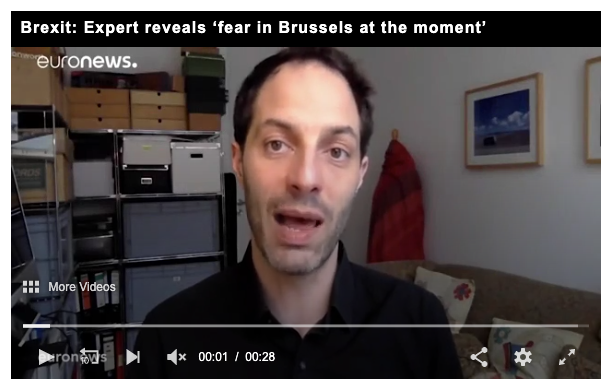
Let's try a little counterfactual thread
The critique from plenty of people in 🇪🇺 and 🇬🇧 has been 🇪🇺 got its vaccines strategy *wrong*
So if it were wrong, what should it have done better?
The critique from plenty of people in 🇪🇺 and 🇬🇧 has been 🇪🇺 got its vaccines strategy *wrong*
So if it were wrong, what should it have done better?
First BioNTech/Pfizer orders and approval
🇬🇧 approved 3 weeks before 🇪🇺, and received a solid early order (shipped from Puurs 🇧🇪)
🇬🇧 signed contract with Pfizer/BioNTech 4 months before 🇪🇺, but EIB and 🇩🇪 provided funding, 🇬🇧 govt did not
🇬🇧 approved 3 weeks before 🇪🇺, and received a solid early order (shipped from Puurs 🇧🇪)
🇬🇧 signed contract with Pfizer/BioNTech 4 months before 🇪🇺, but EIB and 🇩🇪 provided funding, 🇬🇧 govt did not
BioNTech has also stated that more public funding would have not helped it scale up faster
Also looking forward, with Marburg 🇩🇪, Frankfurt 🇩🇪 due on stream in a couple of months, and lipids from Hanau 🇩🇪 (Evonik) to complete the 🇪🇺-based supply chain, this looks solid now
Also looking forward, with Marburg 🇩🇪, Frankfurt 🇩🇪 due on stream in a couple of months, and lipids from Hanau 🇩🇪 (Evonik) to complete the 🇪🇺-based supply chain, this looks solid now
What could 🇪🇺 have done better?
*Perhaps* approved earlier
*Perhaps* ordered earlier, so as to have secured more doses in Q1 - but before Puurs upgrade total doses were limited overall
*Perhaps* approved earlier
*Perhaps* ordered earlier, so as to have secured more doses in Q1 - but before Puurs upgrade total doses were limited overall
What about AstraZeneca?
🇬🇧 approved 4 weeks ahead of 🇪🇺, but due to the thin data available there was perhaps good reason for caution here. And what has happened since has borne this out
🇬🇧 approved 4 weeks ahead of 🇪🇺, but due to the thin data available there was perhaps good reason for caution here. And what has happened since has borne this out
Extent of AZ having an exclusive supply arrangement with 🇬🇧 hasn't been definitively answered, but given 🇬🇧 has AZ production of 6m AZ doses/month, even were that not the case, production from 🇬🇧 would not have made up the shortfall
The crux: AZ projected 100m doses for Q1 to 🇪🇺 and delivered 31m. Had that not been the case, vaccine roll out in 🇪🇺 would have been further along
The mystery of the Halix plant contributes to this - we still don't know what's up there
The mystery of the Halix plant contributes to this - we still don't know what's up there
What could 🇪🇺 have done to improve this in 2021 until now? Pretty much nothing, as the news of the shortfall came too late (22 Jan)
What about Moderna?
🇪🇺 has a rather small order of it (as does 🇬🇧 for that matter) and it has not been central to roll out for either
🇪🇺 has a rather small order of it (as does 🇬🇧 for that matter) and it has not been central to roll out for either
Johnson & Johnson?
This is a harder one to unpick. 🇪🇺 realised in January or February that the J&J plan to manufacture in Leiden 🇳🇱 and bottle in 🇺🇸 would lead to doses getting stuck in 🇺🇸, so sorted a supply chain in 🇩🇪🇪🇸 instead
This is a harder one to unpick. 🇪🇺 realised in January or February that the J&J plan to manufacture in Leiden 🇳🇱 and bottle in 🇺🇸 would lead to doses getting stuck in 🇺🇸, so sorted a supply chain in 🇩🇪🇪🇸 instead
Had 🇪🇺 been alert to this danger sooner - in autumn rather than in early 2021 - it's possible there might be a little more J&J on stream already now
So - in summary - even *if* 🇪🇺 had done pretty much everything in its control right, it would have had a little more Pfizer/BioNTech sooner (up to 20m doses) and perhaps some more J&J (no more than 10m)
Given an EU adult population of 330m or so, that'd still mean the vaccination supply in 🇪🇺 would not have been significantly better than it is now
Are there other problems?
Yes, notably roll out - looking at the rates at which vaccines have been going into arms, 🇬🇧's NHS did very well. But likewise so have some EU Member States like 🇩🇰. But 🇪🇺 *itself* is not responsible for getting doses into arms
Yes, notably roll out - looking at the rates at which vaccines have been going into arms, 🇬🇧's NHS did very well. But likewise so have some EU Member States like 🇩🇰. But 🇪🇺 *itself* is not responsible for getting doses into arms
There is also the other aspect of a counter-factual: if 🇪🇺 had not handled procurement jointly, vaccine supply would vary wildly between Member States, leaving poorer states and those without their own supply suffering. Doing this jointly made sense
So, to conclude:
Was this done perfectly? NO
Were there errors? YES
How much better would vaccine supply be in EU be in a best-case? A LITTLE
Let's keep the doomsday takes in perspective please!
/ends
Was this done perfectly? NO
Were there errors? YES
How much better would vaccine supply be in EU be in a best-case? A LITTLE
Let's keep the doomsday takes in perspective please!
/ends
• • •
Missing some Tweet in this thread? You can try to
force a refresh




